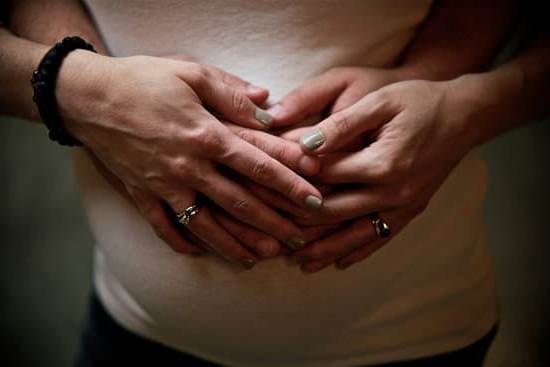Pregnancy is a crucial time in a woman’s life, and the role of nutrition during this period cannot be overstated. A well-balanced diet is essential for both the health of the mother and the development of the baby.
In order to ensure that expectant mothers are equipped with the necessary knowledge to make informed dietary choices, a proper nutrition plan tailored to pregnancy is of utmost importance. This article aims to provide a comprehensive guide to creating and following a pregnancy nutrition plan, including a sample plan and practical tips for maintaining a healthy diet throughout pregnancy.
During pregnancy, the body’s nutritional needs undergo significant changes as it works to support the growth and development of the fetus. A variety of essential nutrients such as folate, iron, calcium, and omega-3 fatty acids are vital for ensuring a healthy pregnancy. Therefore, understanding these nutrient requirements and their benefits for both mother and child is crucial in developing an effective pregnancy nutrition plan.
By creating a personalized nutrition plan that includes a diverse range of foods, expectant mothers can ensure that they are meeting their nutritional needs throughout each trimester. This involves not only considering what to eat but also being mindful of hydration and avoiding certain food products that may pose risks during pregnancy. In addition, practical tips will be provided for overcoming common challenges such as nausea and food aversions in order to maintain optimal nutrition throughout this important journey.
Nutrient Requirements During Pregnancy
During pregnancy, it is essential for women to pay close attention to their nutrient intake in order to support the growth and development of the baby, as well as maintain their own health. A well-balanced diet that includes a variety of nutrients is crucial for ensuring a healthy pregnancy. In this section, we will delve into the specific nutrient requirements during pregnancy and explore the benefits of these essential nutrients for both the mother and the baby.
Folic Acid (Folate)
Folic acid plays a critical role in preventing neural tube defects in babies, making it one of the most important nutrients during pregnancy. This B vitamin is also vital for cell division and DNA formation, supporting the rapid growth of the placenta and fetus. Pregnant women are advised to consume 600 micrograms of folic acid daily through foods such as leafy green vegetables, dried beans, and fortified cereals, or by taking a prenatal vitamin containing folic acid.
Iron
Iron is necessary for carrying oxygen to the baby and preventing anemia in pregnant women. During pregnancy, the body’s blood volume increases to accommodate the needs of the developing fetus, requiring a higher intake of iron. Good sources of iron include lean meats, poultry, fish, legumes, and fortified cereals. It is recommended that pregnant women consume approximately 27 milligrams of iron per day.
Calcium
Calcium is essential for building strong bones and teeth in both the mother and the baby. During pregnancy, calcium also supports proper muscle function and nerve transmission. Pregnant women should aim to consume 1,000 milligrams of calcium daily through dairy products, leafy greens, fortified plant milks, or supplements if necessary.
By understanding the specific nutrient requirements during pregnancy and incorporating these essential nutrients into their diet, expectant mothers can ensure optimal health for themselves and their babies. For more detailed information on nutrient requirements during pregnancy and how to meet them through proper nutrition planning, refer to a comprehensive pregnancy nutrition plan PDF available from reputable sources or healthcare providers specializing in prenatal care.
Building a Pregnancy Nutrition Plan
During pregnancy, it is crucial for women to prioritize their nutrition to ensure the health and development of both themselves and their babies. Building a personalized pregnancy nutrition plan can help expectant mothers meet their specific nutritional needs while also maintaining a healthy and balanced diet. Here is a step-by-step guide on creating a pregnancy nutrition plan:
1. Determine Nutritional Needs: The first step in building a pregnancy nutrition plan is to understand the specific nutritional requirements during each trimester. This includes the need for essential nutrients such as folic acid, iron, calcium, and omega-3 fatty acids. Consulting with a healthcare provider or a registered dietitian can help determine individual nutritional needs based on factors such as pre-existing health conditions, age, weight, and dietary restrictions.
2. Choose Nutrient-Rich Foods: Once the nutritional needs are established, it is important to select a variety of nutrient-rich foods that provide essential vitamins and minerals. Incorporating fruits, vegetables, whole grains, lean protein sources, and dairy products can help ensure that the pregnancy nutrition plan is well-rounded and meets different dietary requirements.
3. Plan Balanced Meals: Creating balanced meals that include a mix of carbohydrates, proteins, fats, and fiber is essential for meeting nutritional needs during pregnancy. It is recommended to aim for three regular meals per day along with healthy snacks to maintain energy levels and support overall health.
As you build your personalized pregnancy nutrition plan PDF, consider incorporating these steps to create a well-rounded approach that takes into account different nutritional needs throughout each trimester of pregnancy. By consulting reputable sources and seeking guidance from healthcare professionals, expectant mothers can ensure that they are prioritizing their nutrition for a healthy pregnancy journey.
Sample Pregnancy Nutrition Plan
During pregnancy, a woman’s body undergoes significant changes to support the growth and development of the baby. Proper nutrition is essential to ensure the health and well-being of both the mother and the child. Building a personalized pregnancy nutrition plan can help expecting mothers meet their specific dietary needs and promote a healthy pregnancy.
First Trimester
During the first trimester, many women experience morning sickness, which can make it challenging to stick to a regular eating routine. It’s important to focus on small, frequent meals that are easy on the stomach. Foods high in protein, such as eggs, yogurt, and lean meats, can help combat nausea. Incorporating whole grains, fruits, and vegetables into your diet will also provide essential vitamins and minerals for fetal development.
Second Trimester
As nausea tends to subside during the second trimester, women may have an increased appetite. This is an ideal time to focus on incorporating more nutrient-dense foods into the diet. Iron-rich foods like spinach and lean red meat are important for preventing anemia, while calcium-rich foods like dairy products support bone development in the baby. Including healthy fats from sources like avocados and nuts can also aid in brain development.
Third Trimester
In the final trimester of pregnancy, maintaining energy levels becomes crucial as the baby continues to grow rapidly. Incorporating complex carbohydrates from sources such as whole grains and legumes can provide sustained energy throughout the day. Omega-3 fatty acids found in fish or chia seeds are important for supporting brain and eye development in the baby. Additionally, staying hydrated with water and electrolyte-rich beverages is essential for preventing dehydration and ensuring proper blood flow.
By following a sample pregnancy nutrition plan tailored to each trimester of pregnancy, expecting mothers can prioritize their health and well-being while supporting optimal fetal development. For additional support in building a personalized nutrition plan during pregnancy, consider seeking guidance from reputable sources or healthcare providers for expert advice tailored to individual needs.
Tips for Eating Well During Pregnancy
During pregnancy, maintaining a healthy diet is not always easy, especially when faced with challenges such as nausea and food aversions. However, it is crucial to ensure that both the mother and the baby receive essential nutrients for optimal health and development. Here are some practical tips for eating well during pregnancy:
1. Eat Small, Frequent Meals: If you experience nausea or vomiting during pregnancy, try eating small, frequent meals throughout the day rather than three large meals. This can help alleviate symptoms and provide a steady source of nutrients for you and your baby.
2. Listen to Your Cravings (in Moderation): It’s common for pregnant women to experience cravings for specific foods. While it’s okay to indulge in these cravings occasionally, it’s important to practice moderation and ensure that you are still consuming a balanced diet. For example, if you crave sweets, consider opting for healthier alternatives like fruit or yogurt.
3. Stay Hydrated: Drinking an adequate amount of water is essential during pregnancy, especially as the body’s demand for fluids increases. Keep a water bottle with you throughout the day as a reminder to stay hydrated. Additionally, consuming hydrating foods such as fruits and vegetables can contribute to overall fluid intake.
4. Experiment with Different Foods: If certain foods trigger nausea or aversions, don’t be afraid to experiment with different flavors or preparation methods. For example, if the smell of certain foods makes you feel nauseous, try preparing them in ways that minimize odors or opt for alternative ingredients that provide similar nutrients.
5. Take Prenatal Vitamins: In addition to consuming nutrients through food, prenatal vitamins can help fill any nutritional gaps in your diet during pregnancy. Consult with your healthcare provider to determine which prenatal vitamins are suitable for your individual needs.
By following these practical tips and being mindful of your nutrition intake during pregnancy, you can overcome common challenges while ensuring that both you and your baby receive the essential nutrients needed for a healthy pregnancy.
Importance of Hydration
Staying hydrated is crucial for a healthy pregnancy, as proper hydration plays a vital role in supporting the body’s functions and providing an optimal environment for the growing baby. During pregnancy, a woman’s body undergoes various changes that increase the need for fluids.
Dehydration can lead to complications such as urinary tract infections and preterm labor. Hence, it is essential for expectant mothers to understand the importance of adequate fluid intake and implement strategies to ensure they stay properly hydrated throughout their pregnancy.
One way to monitor hydration levels is by paying attention to urine color. Clear or light-colored urine usually indicates that a person is well-hydrated, while dark yellow urine may signal dehydration. According to the American College of Obstetricians and Gynecologists (ACOG), pregnant women should aim to drink about ten 8-ounce glasses of water daily. Additionally, hydration can also come from other sources such as herbal teas, fruits like watermelon, and certain vegetables.
Moreover, consuming foods with high water content can contribute significantly to overall hydration. For example, cucumbers, strawberries, celery, and lettuce have a high water content that can help with fluid intake. Incorporating these hydrating foods into meals and snacks can further support a pregnant woman’s efforts to maintain proper hydration levels throughout the day.
| Hydration Tips | Data |
|---|---|
| Monitor Urine Color | Clear or light-colored urine indicates proper hydration |
| Recommended Daily Fluid Intake | Pregnant women should aim for about ten 8-ounce glasses of water daily |
| Foods with High Water Content | Cucumbers, strawberries, celery, lettuce are examples that can help with fluid intake |
Foods to Avoid During Pregnancy
During pregnancy, it is crucial for women to be mindful of the foods they consume to ensure the health and well-being of themselves and their babies. Certain foods can pose risks during pregnancy due to potential contamination or harmful effects on the developing fetus.
It is important for expectant mothers to be aware of these risks in order to make informed decisions about their diet. To help expectant mothers navigate this important aspect of pregnancy nutrition, below are some common foods that should be avoided or limited during pregnancy, along with explanations of the potential risks associated with consumption.
1. Soft Cheese: Soft cheeses such as brie, feta, and camembert may contain harmful bacteria called Listeria, which can cause miscarriage or premature birth. It’s best to avoid these cheeses during pregnancy and opt for harder cheeses like cheddar or Swiss.
2. Raw or Undercooked Meat: Raw or undercooked meat, including deli meats and hot dogs, can harbor harmful bacteria like E. coli and Salmonella, which can lead to foodborne illnesses that pose serious risks during pregnancy. Make sure all meat is cooked thoroughly before consumption.
3. Certain Fish: High-mercury fish such as shark, swordfish, king mackerel, and tilefish should be avoided during pregnancy due to their potential negative effects on the baby’s developing nervous system. Instead, opt for low-mercury options such as salmon, tilapia, and shrimp.
By being mindful of these food choices and understanding the risks associated with certain foods, expectant mothers can take proactive steps in ensuring a healthy diet throughout their pregnancies.
| Foods to Avoid | Potential Risks |
|---|---|
| Soft Cheese | Listeria contamination leading to miscarriage or premature birth |
| Raw or Undercooked Meat | Exposure to harmful bacteria such as E.coli and Salmonella causing foodborne illnesses |
| Certain Fish | High-mercury content affecting the baby’s developing nervous system |
Resources and Additional Support
When it comes to creating a comprehensive pregnancy nutrition plan, it’s important for expectant mothers to have access to reliable resources and additional support. There are various reputable sources that offer valuable information on pregnancy nutrition, including government health websites, healthcare professionals, and nutrition experts. These sources can provide expectant mothers with the guidance they need to make informed decisions about their diet during pregnancy.
One excellent resource for further information on pregnancy nutrition is the Pregnancy Nutrition Plan PDF available from many healthcare providers and organizations. This downloadable document outlines essential nutrients, offers sample meal plans, and provides tips for maintaining a healthy diet throughout each trimester of pregnancy. It can serve as a valuable reference for expectant mothers who are looking to build a personalized nutrition plan that meets their specific nutritional needs.
Along with accessing reliable information, expectant mothers may also benefit from seeking additional support in the form of prenatal classes or support groups. These resources can offer a sense of community and provide opportunities to connect with other women who are going through similar experiences.
They may also be led by healthcare professionals or nutrition experts who can offer guidance on creating and sticking to a healthy pregnancy nutrition plan. By taking advantage of these resources and supports, expectant mothers can feel more confident in their ability to prioritize their nutrition during this critical time.
Conclusion
In conclusion, creating and following a pregnancy nutrition plan is essential for the health and well-being of both the mother and the baby. The nutrient requirements during pregnancy are distinct, and a balanced diet can ensure that these needs are met adequately.
By incorporating a variety of nutrient-rich foods into their meals, expectant mothers can optimize their health and reduce the risk of complications during pregnancy. Additionally, staying hydrated is crucial for supporting the body’s physiological changes and promoting fetal development.
It is important for expectant mothers to remember that maintaining a healthy diet during pregnancy not only benefits their own health but also contributes to the optimal growth and development of their baby. With the help of resources such as a pregnancy nutrition plan PDF, women can easily access valuable information to assist them in planning nutritious meals throughout each trimester.
It is recommended to consult with healthcare providers or registered dietitians to address any specific concerns or questions regarding dietary choices during pregnancy.
Ultimately, by prioritizing proper nutrition throughout their pregnancies, expectant mothers are taking proactive steps towards ensuring a healthy future for themselves and their babies. By following practical tips, staying informed about essential nutrients, and making use of available resources for support, women can feel empowered in making sound nutritional choices during this critical time.
It is important to remember that every woman’s journey through pregnancy is unique, but with proper guidance and a well-structured nutrition plan, they can navigate this transformative experience with confidence and positivity.
Frequently Asked Questions
What Is Proper Nutrition for Pregnant Mothers?
Proper nutrition for pregnant mothers is essential for the health and development of both the mother and the baby. This includes a balanced diet that consists of fruits, vegetables, lean proteins, whole grains, and healthy fats. It’s important to also get enough folic acid, iron, calcium, and other essential vitamins and minerals during pregnancy.
What Is the Best Meal Plan for Pregnancy?
The best meal plan for pregnancy includes a variety of nutrient-rich foods that provide the necessary nutrients for both the mother and the growing baby. This can include meals that consist of whole grains like brown rice or quinoa, lean proteins like chicken or fish, plenty of fruits and vegetables, and healthy fats like avocados or nuts.
It’s also important to stay hydrated by drinking plenty of water throughout the day.
What Is the Best Nutrition for a Pregnant Woman?
The best nutrition for a pregnant woman involves consuming a well-rounded diet that provides all the necessary nutrients for fetal growth and development. This means focusing on foods high in folic acid, iron, calcium, protein, and omega-3 fatty acids.
It’s important to avoid empty calories from sugary snacks or drinks and instead opt for nutrient-dense options to support both maternal and fetal health throughout pregnancy.

Welcome to my fertility blog. This is a space where I will be sharing my experiences as I navigate through the world of fertility treatments, as well as provide information and resources about fertility and pregnancy.





